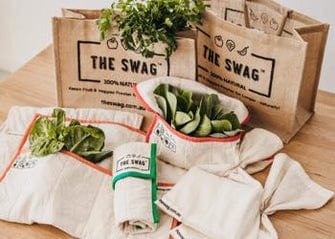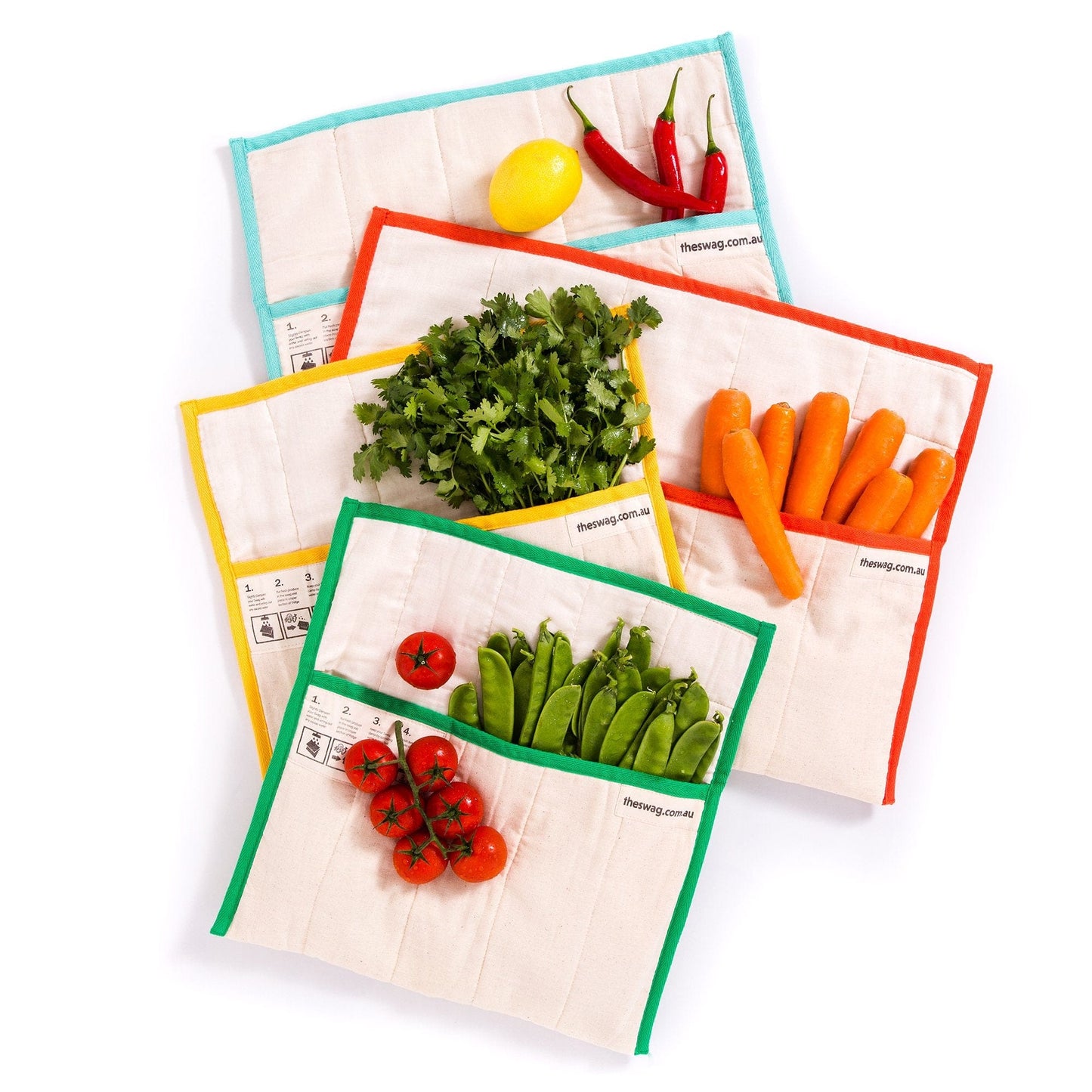There are so many ways you can save a penny here and there while also doing favours for the planet! Each cent adds up, and with the rising cost of living, now is more important than ever to find ways to not only reduce waste, live sustainably but to reduce our spending! Read ahead for our 2 cents on how you can reduce waste around your kitchen, living room, and garden and save a few dollars while doing it!
1. Drop off points for soft plastics
Soft plastics, including plastic bags, should not be put in your household recycling bin (only a small number of councils accept them). You can, however, drop off your soft plastics (basically anything you can scrunch in your hand) for recycling at some supermarkets. Look for the REDcycle collection bin at the front of your local supermarket or check at awesome companies like RecycleSmartAus. You can also shop in bulk to avoid unnecessary packaging.
2. Lend and borrow items
If you're thinking of buying appliances or items you would only use once a month, why not ask your colleague or friends if you can borrow theirs first? From lawnmowers, to bridesmaids dresses, to a pasta making machine - there’s plenty of things that you can borrow. Check out your nearest kitchen library to borrow and save money!
3. The Swag
Did you know that the average Australian household wastes $2,000 worth of food per year? With the cost of fruit and vegetables skyrocketing, investments like The Swag are invaluable for not only reducing the cost of groceries to the household budget, but also to eliminate food waste and plastic pollution.
4. Make your own food
Processed food such as patties or pasta aren’t difficult to make - they just require a bit more time and patience. The difference in taste will be worth the wait, and the monetary reward of saving a few dollars will go a long way too. Add new weeknight recipes to your repertoire and spend quality time and share the experience with friends and family!
5. Collect rainwater
Rain water is free (depending on where you live) and it’s nature's best fertilizer. Next time you see dark clouds, grab a bucket, place it in an uncovered area, and let mother nature do its thing. Use the rainwater to water plants, clean floors, or wash your car!
6. Join a community garden
Community gardens not only bring lots of social time but also time with nature. This is great for your health and also helps with your grocery shopping.
7. Share a compost
If you can’t afford a compost bin, and your household produces lots of organic scraps, peels, or used coffee grounds... Wouldn't it be great if you could turn all that stuff into new soil rather than adding it to landfill? Check out Sharewaste’s map to find a neighbour willing to share their compost and bring some compost home for your plants once it has matured.
8. Join Facebook trade groups
If you’ve got old furniture, magazines, toys and old fashioned clothes you’re not going to use again, try Facebook trade groups. There will always be someone somewhere interested in a product you can’t keep. Try searching for keywords such as #trade, #swap or #swapbuysell
9. Drop off non-recyclable materials in a TerraCycle box
As you know, we're all about zero-waste and thhe company TerraCycle gives non recyclable items such as pens, coffee pods, toothpaste tubs, snack wrappers a new life! TerraCycle launched the Zero Waste Box system, a program that sorts and processes such items into raw material that will be reused instead of being sent to landfill.
10. Non-Paper Towel
Seventeen trees are needed to produce 1 ton of single-use paper towels that are often made from virgin paper, and once used go directly into landfill. Our Swag Non-Paper Towels, made of unbleached, unseeded and non-toxic cotton, are the perfect reusable alternative that will tackle messes and spills (for years to come!).



